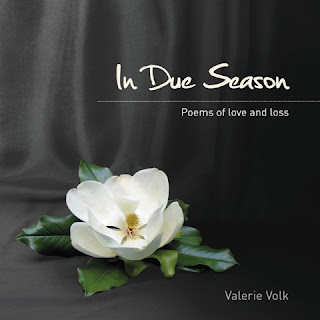Today's blog will highlight some of the achievements of our members from March to May 2018
Awards
Valerie Volk
She was
- was short-listed in August for the Australian Catholic University (ACU) Poetry Prize 2018, with a poem titled Via Dolorosa, which will now be included in the forthcoming anthology
- won the Adelaide Hills Poetry Festival’s Open Section in August with Midnight at Tromso
- had two short poems included in the current Transport Poems distributed in Melbourne’s public transport vehicles.
- three poems: The Guest, The space beside us and Dissonance in the Friendly Street Poets new anthology. "Dream-water Fragment", September 2018
CALEB finalists
Congratulations to our members (and other authors) listed as finalists for the 2018 CALEB award:
Published Fiction - Carolyn Miller, Amanda Deed, Meredith Resce,
Published Non-Fiction - Jen Gibbs, (Harriet Conner, Rosie Bloom)
Published Children's Literature - Katrina Roe, Jen Gibbs, (Penny Reeve)
Unpublished Manuscript - Susan Bruce, Raelene Purtill, (Alisha Walkerden, Jarrod Stackelroth)
.
The winners will be announced at the Omega Writers Conference (see below).
We wish you all the best.
http://www.omegawriters.org/uncategorized/caleb-prize-finalists/
Pieces Accepted
Elizabeth Klein
Elizabeth Klein has also had a busy few months with a number of pieces accepted for publication.
Her Comedy Theatre for Upper Primary book of ten quirky plays, teacher's notes and loads of student worksheets was accepted for publication by Five Senses Education on June 8th, 2018. It will be made into two textbooks this coming December.
Blurb: Comedy Theatre contains ten humorous plays for busy teachers that eliminates the challenges and frustrations associated with creating and organising scripted plays within the classroom. This book incorporates quirky plots involving modern-day detectives and super heroes, fictional historical characters as well as Santa Claus just to name a few.
Short story, Spaceman, was accepted by Storm Cloud Publishing for inclusion in their Open House 2 anthology on Friday 13th July, 2018.
Blurb: When a spaceman named Signus Magnamus asks you to see the stars with him and then proposes, you go of course, and become a singer at Alpha Detour.
Bio: When Elizabeth Klein is not writing, she is often travelling about in her caravan or house sitting with her husband.
New Releases
Christine Dillon
Christian Dillon has released the sequel to Grace in Strange Disguise.
Grace in the Shadows (Book 2 in ‘Grace’ series) (31 July 2018, Links in the Chain Press)
Grace in the Shadows (Book 2 in ‘Grace’ series) (31 July 2018, Links in the Chain Press)
BLURB:
Physiotherapist Esther has survived cancer, but wounds within her family remain unhealed. Is her revived faith the reason for the rift or could a simmering secret be the root cause?
Cosmetics consultant Rachel buried her past - and her father's God - but the past refuses to stay buried. Will she continue to run or is confronting her pain the way to freedom?
Two women. Two different lives.
One collision course with light and truth.
Can God's grace shine even in the darkest of shadows?
https://www.books2read.com/u/4AYj20
Bio - Christine is an author of both non-fiction and fiction who spends her life telling Bible stories in Asia and Australia. This is her second published novel.
Other News
Omega Writers Conference
Omega Writers Conference is fast approaching and with a great line up. This year it is in Adelaide.
When - 26 – 28 October, 2018
Where - The Monastry, Adelaide
Omega Writers Book Fair
Omega Writers Book Fair (Brisbane) will be on again next year. A great opportunity for readers to find new books and authors, and authors to connect with readers.
Mark the date - Saturday, 9th March at Hills Church, 79 Queens Road, Everton Park Qld 4053
More information to come.
Congratulations to all our members for your milestones and achievements.
Mark the date - Saturday, 9th March at Hills Church, 79 Queens Road, Everton Park Qld 4053
More information to come.
Congratulations to all our members for your milestones and achievements.























